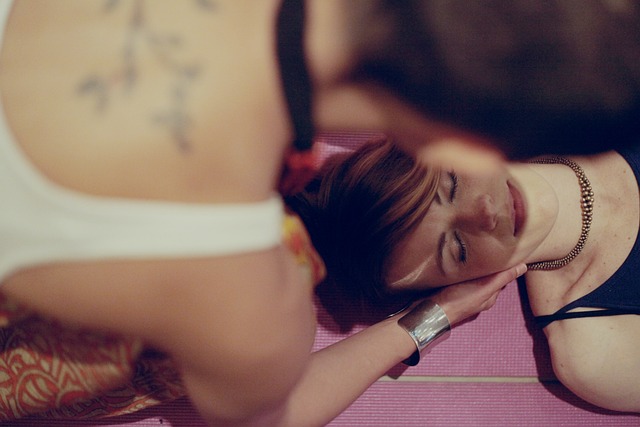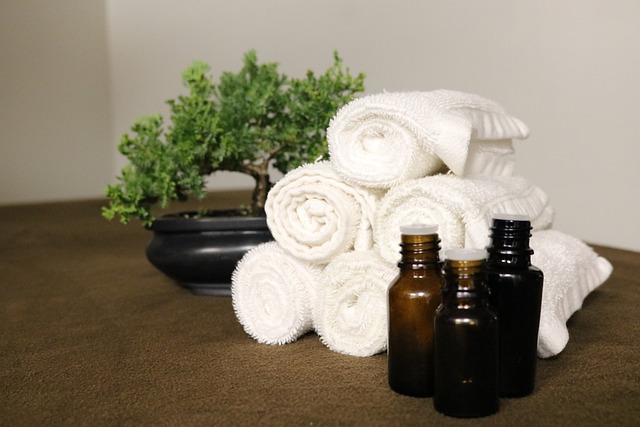Resilience is a mindset that embraces growth opportunities, fostered through consistent self-care routines like exercise, meditation, mindfulness, balanced diets, quality sleep and engaging hobbies. Integrating holistic practices such as mindfulness and relaxation techniques significantly enhances stress management and emotional balance, enabling individuals to proactively navigate challenges with clarity. A strong support network from meaningful relationships and relaxing physical spaces further contributes to overall well-being, emphasizing the importance of self-care routines in building resilience.
Cultivating resilience is essential in today’s fast-paced world, where stress can feel all-encompassing. This article guides you through effective techniques to build inner strength, manage stress, and enhance overall well-being. From understanding the foundation of resilience to adopting self-care routines, mindfulness practices, and fostering social connections, discover holistic strategies for a balanced life. Learn how these tactics can empower you to navigate challenges with grace and tranquility, ensuring long-term mental health and resilience.
- Understanding Resilience: Building Your Inner Strength
- Self-Care Routines for Stress Management: A Holistic Approach
- Mindfulness and Relaxation Techniques to Calm the Mind
- Creating a Supportive Environment: Social Connections and Stress Relief
Understanding Resilience: Building Your Inner Strength

Resilience is often described as the ability to adapt and bounce back from challenges, setbacks, or stress. It’s a valuable skill that allows individuals to navigate life’s stormy seas with grace and determination. Understanding resilience involves recognizing that it’s not just about overcoming hardships but also about how you choose to respond to them. Building your inner strength means cultivating a mindset that embraces challenges as opportunities for growth, rather than viewing them as insurmountable obstacles.
One effective way to foster resilience is through consistent self-care routines. This includes physical activities like regular exercise or meditation practices that promote mental clarity and emotional balance. Incorporating moments of stillness, whether it’s a daily walk in nature or a few minutes of mindful breathing, can help reduce stress levels and enhance your overall well-being. Additionally, maintaining a balanced diet, getting enough quality sleep, and engaging in hobbies that bring joy contribute to building inner strength, ensuring you have the energy and resilience needed to face life’s curveballs head-on.
Self-Care Routines for Stress Management: A Holistic Approach

Incorporating consistent self-care routines is a potent technique for cultivating resilience and managing stress. This holistic approach involves nurturing both the mind and body, ensuring each aspect receives the care it needs to thrive. Simple practices such as regular exercise, mindful meditation, and adequate sleep form the backbone of these routines. Engaging in activities that bring joy, whether reading, painting, or spending time in nature, also plays a crucial role in reducing stress levels and fostering emotional well-being.
Self-care routines are not one-size-fits-all; they should be tailored to individual needs and preferences. This customization ensures that the practices become sustainable habits, reinforcing resilience over the long term. By integrating these routines into daily life, individuals can better navigate stressful situations, maintaining a sense of balance and equilibrium.
Mindfulness and Relaxation Techniques to Calm the Mind

Incorporating mindfulness and relaxation techniques into your self-care routines can significantly enhance resilience to stress. Practices like meditation, deep breathing exercises, or yoga help calm the mind and body, reducing the negative impact of stressful situations. By focusing on the present moment and cultivating a sense of inner peace, individuals can better navigate life’s challenges with clarity and composure.
These techniques foster mental clarity, improve emotional regulation, and enhance overall well-being. Regular engagement in mindfulness activities allows one to recognize stress triggers early on, enabling proactive management rather than reactive responses. Incorporating these practices into daily life provides a powerful toolkit for cultivating resilience, ensuring individuals can maintain balance and composure even amidst challenging circumstances.
Creating a Supportive Environment: Social Connections and Stress Relief

Building a strong support network is a cornerstone of stress management and resilience-building. Strong social connections provide a sense of belonging and security, acting as a buffer against life’s challenges. Incorporating meaningful relationships into your self-care routines can significantly enhance your ability to cope with stress. Whether it’s joining community groups, engaging in hobbies with friends, or simply spending quality time with family, these interactions offer emotional support and remind us that we’re not alone in navigating life’s ups and downs.
Fostering a supportive environment also involves creating physical spaces that nurture well-being. This could mean designing your living area to promote relaxation through calming aesthetics and comfortable layouts, or ensuring easy access to nature for mental rejuvenation. Your surroundings play a crucial role in stress reduction, making it essential to cultivate an environment that supports both your emotional and physical health through consistent self-care practices.
Cultivating resilience and effectively managing stress are essential skills for navigating life’s challenges. By understanding the power of our inner strength, adopting holistic self-care routines, practicing mindfulness, and fostering supportive environments, we can enhance our ability to bounce back and lead more fulfilling lives. Incorporating these techniques into our daily lives allows us to build a robust foundation for resilience, enabling us to approach stress with calmness and confidence. Remember, prioritizing self-care routines is a game-changer in managing stress and promoting overall well-being.
